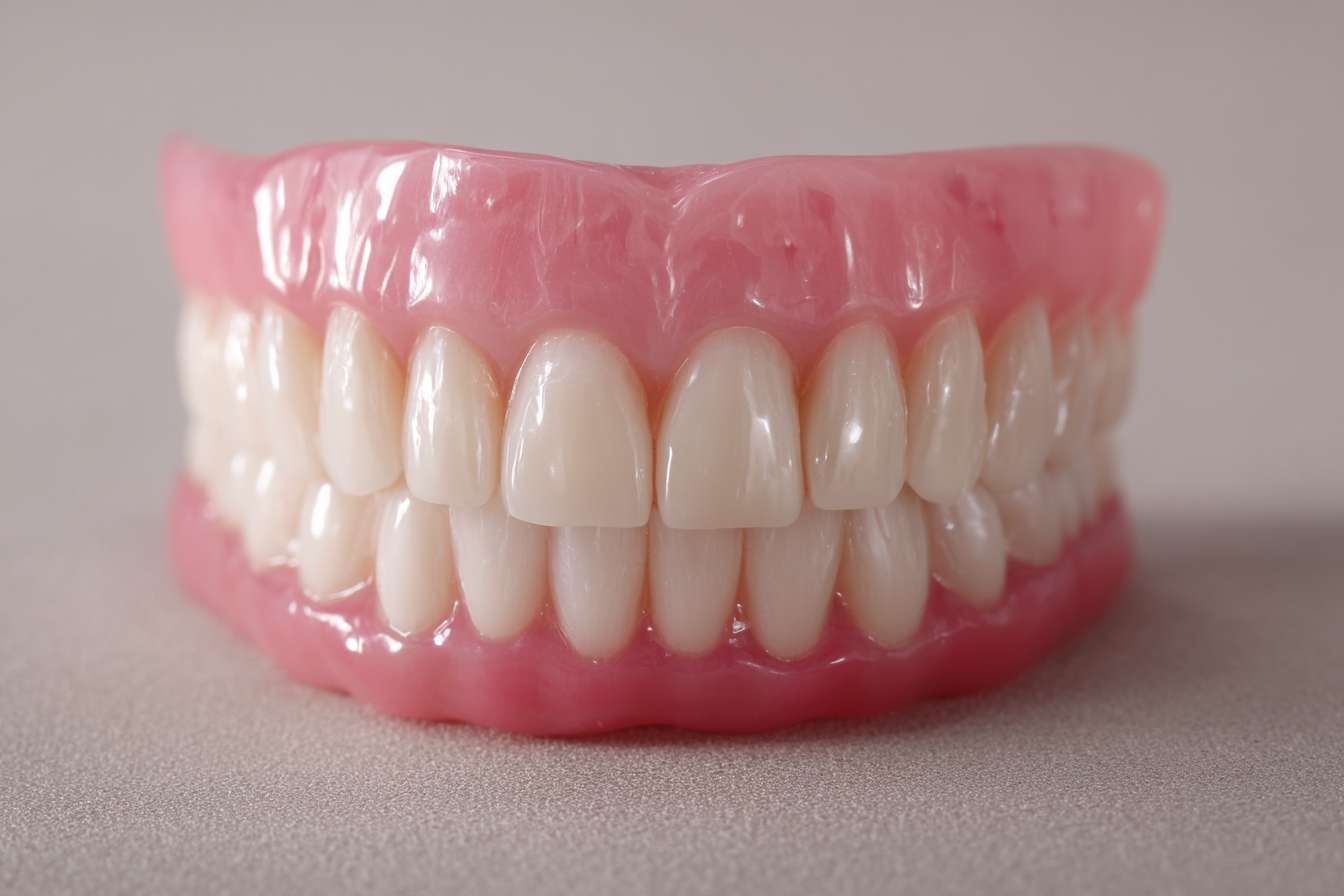Dentures: A Comprehensive Guide to Restoring Your Smile
Dentures have long been a popular solution for those seeking to replace missing teeth and restore their smile. These removable dental appliances are designed to mimic the appearance and function of natural teeth, providing both aesthetic and practical benefits. Whether you're considering dentures for the first time or looking to upgrade your existing set, understanding the different types, care requirements, and latest advancements can help you make an informed decision about your dental health.

How do traditional dentures differ from invisible dentures?
Traditional dentures are the most common type and have been used for many years. They typically consist of a plastic base that matches the color of your gums, with artificial teeth attached to it. These dentures are held in place by suction or dental adhesive and can be easily removed for cleaning.
Invisible dentures, on the other hand, are a more recent innovation in dental technology. These dentures are made from clear or tooth-colored materials that blend seamlessly with your natural teeth and gums. They are often more comfortable and less noticeable than traditional dentures, making them an attractive option for those seeking a more discreet solution.
What are the benefits of choosing dentures?
Dentures offer numerous advantages for those with missing teeth:
-
Improved appearance: Dentures restore your smile and help maintain facial structure, preventing the sunken look that can occur with tooth loss.
-
Enhanced speech: Missing teeth can affect speech patterns. Dentures help you speak more clearly and confidently.
-
Better eating ability: Dentures allow you to enjoy a wider variety of foods, improving nutrition and quality of life.
-
Boosted self-esteem: A full set of teeth can significantly improve your confidence and social interactions.
-
Affordability: Compared to other tooth replacement options like dental implants, dentures are often more budget-friendly.
How are dentures made and fitted?
The process of getting dentures typically involves several steps:
-
Initial consultation: Your dentist will examine your mouth and discuss your options.
-
Impressions: Molds of your mouth are taken to ensure a custom fit.
-
Measurements: Your dentist will determine the proper bite and alignment for your dentures.
-
Fabrication: The dentures are created in a dental laboratory based on the impressions and measurements.
-
Fitting: Your dentist will fit the dentures and make any necessary adjustments for comfort and function.
-
Follow-up appointments: Regular check-ups ensure your dentures continue to fit properly and function well.
What types of dentures are available?
There are several types of dentures to suit different needs:
-
Complete dentures: Used when all teeth are missing in either the upper or lower jaw, or both.
-
Partial dentures: Designed to replace one or more missing teeth when some natural teeth remain.
-
Immediate dentures: Placed immediately after tooth extraction, allowing you to have teeth while your gums heal.
-
Implant-supported dentures: Anchored to dental implants for improved stability and comfort.
-
Overdentures: Fit over a small number of remaining natural teeth or implants for added support.
| Type of Denture | Best For | Key Features | Estimated Cost Range |
|---|---|---|---|
| Traditional Complete | Full tooth replacement | Removable, custom-fit | $1,000 - $3,000 per arch |
| Partial Dentures | Replacing some missing teeth | Removable, clasps onto existing teeth | $700 - $1,800 |
| Invisible Dentures | Discreet tooth replacement | Clear or tooth-colored materials | $2,000 - $4,000 per arch |
| Implant-Supported | Enhanced stability | Anchored to dental implants | $5,000 - $15,000 per arch |
| Immediate Dentures | Immediate tooth replacement | Placed right after extraction | $1,500 - $3,500 per arch |
Prices, rates, or cost estimates mentioned in this article are based on the latest available information but may change over time. Independent research is advised before making financial decisions.
How to care for and maintain your dentures?
Proper care and maintenance of your dentures are crucial for their longevity and your oral health:
-
Clean daily: Brush your dentures with a soft-bristled brush and non-abrasive denture cleaner.
-
Rinse after eating: Remove and rinse your dentures after meals to remove food particles.
-
Handle with care: Place a towel in the sink when handling dentures to prevent damage if dropped.
-
Soak overnight: Most dentures need to stay moist to maintain their shape. Soak them in water or a denture-soaking solution.
-
Regular dental check-ups: Visit your dentist regularly for professional cleaning and to ensure proper fit.
-
Avoid hot water: Hot water can warp dentures, so use cool or warm water for cleaning and soaking.
Dentures are an effective solution for restoring your smile and improving your quality of life. With various options available, from traditional to invisible dentures, there’s a solution to fit every need and budget. By understanding the different types, care requirements, and benefits of dentures, you can make an informed decision about your dental health. Remember to consult with a dental professional to determine the best denture option for your specific situation and to ensure proper fit and care.






